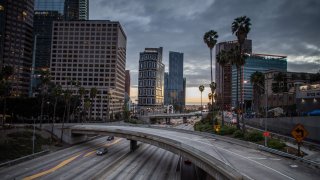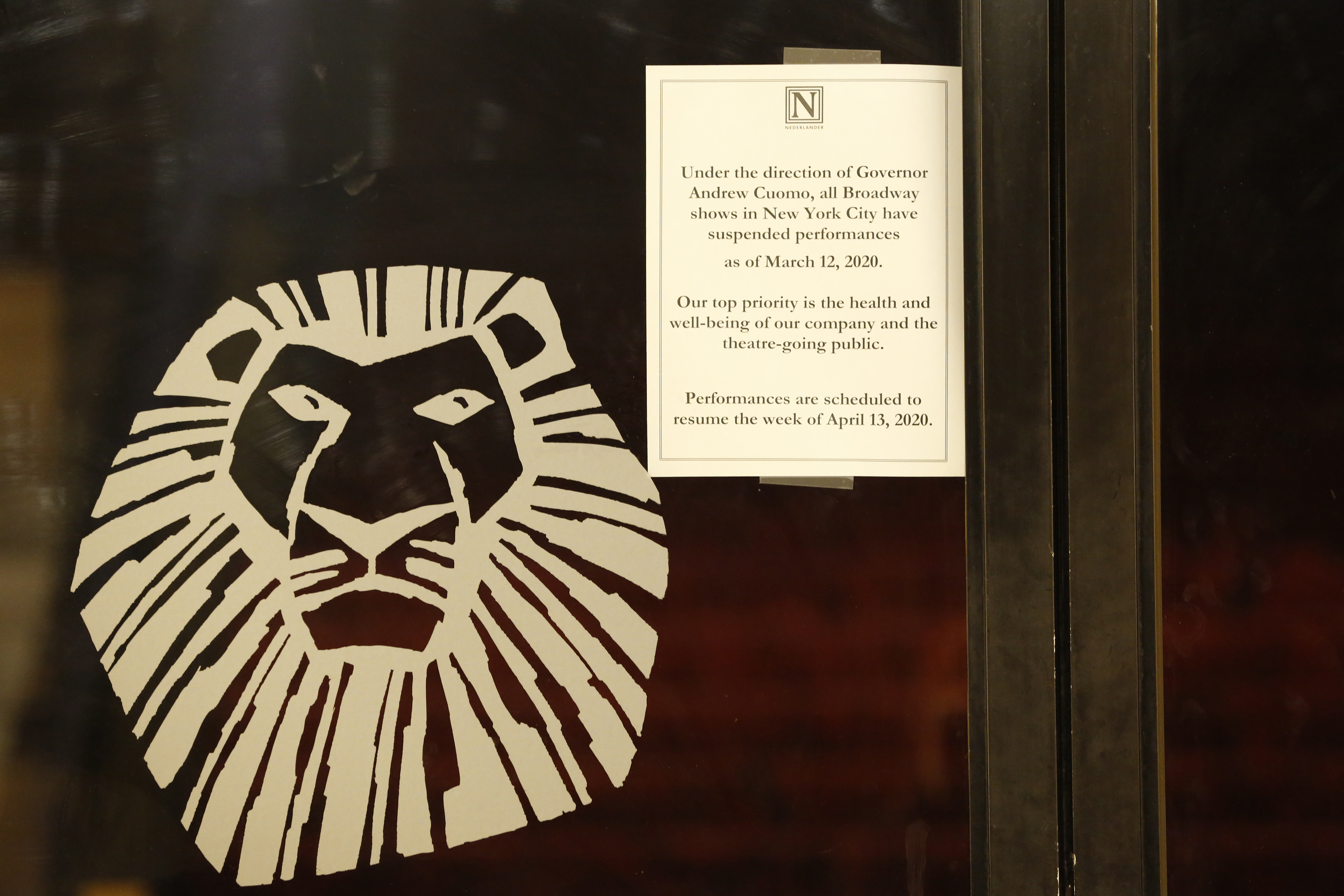
What to Know
- Signs of changes called for over the weekend due to the spread of coronavirus were everywhere Monday in Southern California
- Gov. Gavin Newsom on Sunday urged the state's 5.3 million people who are 65 and older and those with chronic health conditions to isolate
- Hundreds of thousands of LA-area students stayed home as schools closed
Millions of California's oldest and youngest residents stayed home Monday as the state took increasingly strident steps to separate people and contain the spread of the coronavirus.
Evidence that people were staying home included traffic flowing freely on some freeways that are normally congested during rush hours.
Photos: This Is Daily Life Around SoCal in the Shadow of a the COVID-19 Pandemic
Starbucks' shift to take-out only was apparent at a Pasadena location where interior and exterior tables were removed.
Long lines, however, persisted at some grocery stores despite officials saying there's no need to hoard supplies.
Gov. Gavin Newsom on Sunday urged the state's 5.3 million people who are 65 and older and those with chronic health conditions to isolate to protect themselves from the virus. He also called for all bars, wineries, nightclubs and brewpubs to close.
Last week, Newsom recommended all nonessential gatherings be limited to 250 people, prompting the temporary closure of numerous businesses, performances and meetings. He didn't order school closures but virtually every district took the step on its own.
Newsom said an estimated 85% of California's 6 million public school students will be out of their classrooms this week. The length of time varies by district, with some canceling classes for up to five weeks. Newsom said he recognizes the increasing isolation for millions of Californians is "anxiety-inducing" but said the moves are necessary to protect the state's most vulnerable residents.
Los Angeles Mayor Eric Garcetti imposed even stricter requirements. Restaurants may only offer pickup, delivery and drive-through service. He also closed gyms, movie theaters, bowling alleys and arcades.
The restrictions are in effect until at least March 31.
"We need to take these steps to protect our city right now," he said.
In downtown Los Angeles, Sarah Meade, owner of the restaurant and bar Here & Now, said she expected her business to drop by at least 50% in the coming days. She said she is considering signing up for food delivery apps so she can afford to pay her employees.
She faulted the government for not instituting social-distancing rules sooner.
"We wouldn't have to be here if things had been done early," Meade said. "Maybe it only lasts two weeks, but how long is it going to take to recover?"
California has confirmed at least 335 cases of the virus and six deaths. The virus usually causes only mild or moderate symptoms, such as fever and cough, but can be deadly for older people and those with underlying health conditions.
Danielle Blocker of Simi Valley, a special needs aide for the Los Angeles Unified School District, applauded the move to close schools. She has Crohn's disease and is immune compromised.
Students may be young enough to fight off the virus but "they're going to bring it home to people like me," she said.
However, she's not looking forward to making her 14-year-old son study at home. "It's like pulling teeth, it's terrible," she said.
Many districts are arranging for meal pickups for children who depend on schools for breakfast and lunch. Many college students also are back home as their colleges and universities empty their dormitories and move classes online.
Linda York, 65, of San Jose said she plans to follow Newsom's orders and only leave home to walk with her dog, Cara. She said she has a month of food for her and her 65-year-old husband, a physicist who plans to continue working.
For the next few weeks, she plans to use her new camera for nature photography and do household projects. She said the quarantines and closures make it feel like "something real is happening now. We can't escape what happens next."
As the virus has spread, California and other states have been issuing ever-increasing directives. Last week, Newsom recommended all nonessential gatherings be limited to 250 people, prompting the temporary closure of numerous businesses, performances and meetings.
In another effort to keep people separated, state health officials on Saturday urged movie theaters to keep attendance under 250 and ask strangers to sit 6 feet (2 meters) apart. Gambling venues were told to limit 250 people per room and clean chips and slot machines more frequently, while theme parks and attractions were told to thin out crowds by staggering attendance.
Meanwhile, California is working with Verily, the life sciences arm of Google parent company Alphabet, on a tool to help people find coronavirus testing. An online portal would help people determine if they should be tested and direct them to mobile testing units in Santa Clara and San Mateo counties.
"We hope this Verily model can scale and be made national," Newsom said.
The state has increased the number of available hospital beds and will be reopening shuttered medical centers in the coming days.
He also said there would be a significant push to move many of the state's 108,000 homeless people indoors. Though details remained unclear, he said the state had motels that could be used to provide shelter, along with 450 state-owned trailers set up before the outbreak.



